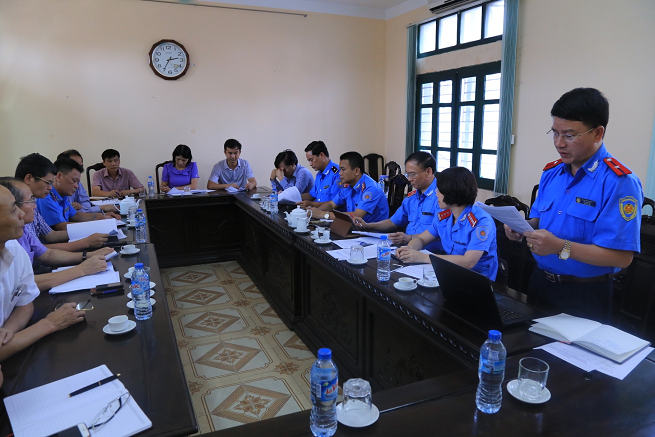The Law on Mediation and Dialogue at Court was officially passed by the National Assembly on June 16, 2020. In particular, it is worth noting that according to this document, officials and public employees are not eligible to be appointed as mediators in Vietnam.

Officials and public employees are not eligible to be appointed as mediators in Vietnam (Internet image)
Specifically, according to Article 10 of the Law on Mediation and Dialogue at Court 2020, the requirements for appointment of mediators in Vietnam include:
- Being a Vietnamese citizen who is permanently residing in Vietnam, loyal to the Fatherland and the Constitution of the Socialist Republic of Vietnam;
- Having full legal capacity, good moral qualities, is exemplary in the observance of the law;
- Used to be a Judge, Court Examiner, Court Clerk, Procurator, Procurator Inspector, Civil Judgment Executor, Inspector; having at least 10 years of experience as a lawyer, expert, or professional; being knowledgeable about customs and traditions and having prestige in the community;
- Having experience and skills in mediation or dialogue;
- Attaining fitness to complete the assigned tasks;
- Possessing a certificate of professional training in mediation or dialogue conducted by a training facility of the Supreme People's Court, unless he/she has been a judge, court examiner of chief examiner or senior examiner level, court clerk of chief clerk or senior clerk level, procurator, executor of civil judgment, or inspector.
At the same time, Clause 2, Article 10 of the Law on Mediation and Dialogue at Court clearly states that a person who falls into one of the following cases may not be appointed as a mediator in Vietnam:
- Failing to meet the requirements specified above;
- Having been an official or public employee; commissioned officer or non-commissioned officer of the People's Army, professional solider, worker and defense officer; People's Public Security commissioned officer or non-commissioned officer, or police worker.
Thus, according to this regulation, officials and public employees will not be appointed as mediators.
Thus, to be appointed as a mediator, a person who finds himself/herself satisfactory with all the requirements above may submit an application for appointment of mediator to the court where he/she wishes to act as a mediator. An application for appointment of a mediator comprises:
- An application form for appointment;
- A curriculum vitae and police (clearance) certificate;
- A fitness to work certificate issued by a competent health authority;
- Documents proving that he/she used to be a Judge, Court Examiner, Court Clerk, Procurator, Procurator Inspector, Civil Judgment Executor, Inspector; having at least 10 years of experience as a lawyer, expert, or professional; being knowledgeable about customs and traditions and having prestige in the community;
- Certificate of professional training in mediation or dialogue conducted by a training facility of the Supreme People's Court, unless he/she has been a judge, court examiner of chief examiner or senior examiner level, court clerk of chief clerk or senior clerk level, procurator, executor of civil judgment, or inspector.
Based on the need to appoint a mediator, the court which receives an application for appointment of mediator shall choose a qualified person and then request the chief judge of the People’s Court of province to consider appointment.
Within 20 days after receiving a duly complete application for appointment of mediator, the chief judge of the People’s Court of province shall consider appointing a mediator; if the application is refused, the chief judge must provide explanation in writing.
Note: The term of office of a mediator is 3 years from the date of appointment.
Nguyen Trinh
 Article table of contents
Article table of contents
![[InfoGraphic] 6 forms of discipline for officials and public employees under Decree 71/2016/ND-CP](https://cdn.lawnet.vn//uploads/NewsThumbnail/2016/07/12/1319291-01.png)









.Medium.png)
.Medium.png)
.Medium.png)
.Medium.png)
